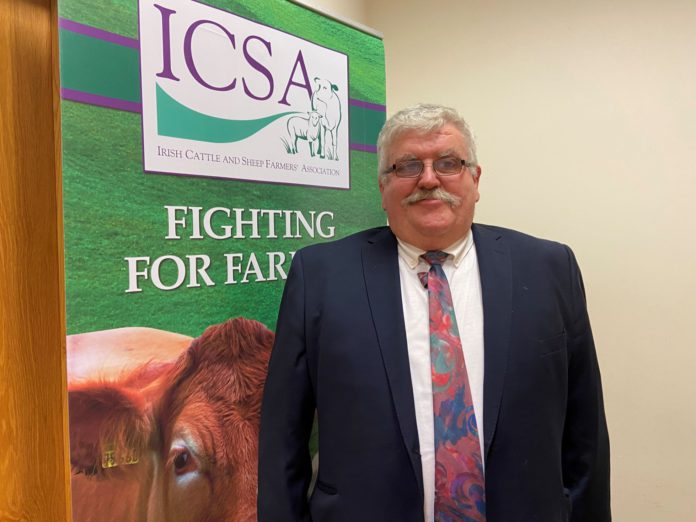The ICSA has called on Irish MEPs to work to defeat the ANIT’s proposals on animal transport.
Its leader, Dermot Kelleher, has urged all Irish MEPs to “pull out all the stops” to get as many votes as possible against the proposed new animal transport rules.
He believes the measures would be an “unmitigated disaster” for Ireland.
ANIT’s proposals on animal transport
The proposed rules have come from the ANIT Committee.
It has called for:
- A ban on exports of calves under 35 days;
- Also, a ban on the transport of animals in the third trimester of pregnancy;
- A two-hour time limit on the transport of unweaned animals over 35 days.
“This is an extreme position which, quite frankly, is a disaster for Ireland. I am calling on all our MEPs to use their positions to get this over-the-top position rolled back,” Kelleher said.
“Ireland is dependent on live exports, and this will be the end of exports of dairy calves.”
The farm leader also believes it is “absurd” to suggest a ban on transporting cows in-calf within three months of calving.
He pointed out that many farmers sell cows and in-calf heifers in the final trimester, for all sorts of reasons such as:
- Herd dispersal;
- Reducing numbers where the farmer does not have sufficient accommodation or feed;
- Economic necessity.
“The reality is that those who do not understand livestock farming are dreaming up these rules. The fact is that these rules will create a lot more animal welfare issues.”
He said farmers need to be able to sell animals at a time that is appropriate to their farming system.
“If you interfere with this, there are unintended consequences,” he warned.
MEPS
The proposals are scheduled to be discussed at the plenary meeting of the European Parliament in Strasbourg next week.
Kelleher called on Irish MEPs to work “very hard” in the coming days to get as much support as possible for a “more measured but pro-animal welfare” policy.
“Extreme urban-based MEPs do not understand that there are a lot of negative animal welfare implications in these proposals.”
He said farmers sell in-calf animals for all sorts of reasons – including the need to get them to farms where they can be calved down.
Furthermore, he believes it is also fundamentally important for animal welfare that dairy farms can sell calves at less than 35 days.
He warned that this set of proposals would have “huge” negative economic implications. Kelleher pointed out that Ireland, as a livestock island, is especially vulnerable.
“Farmers need as many markets as possible, and we need the competition that live exports provide.”
“The reality is that there are no markets for unhealthy or dead animals. The very fact that these markets exist proves that animal transport can and is being accomplished with best practice in terms of animal welfare,” Kelleher concluded.





